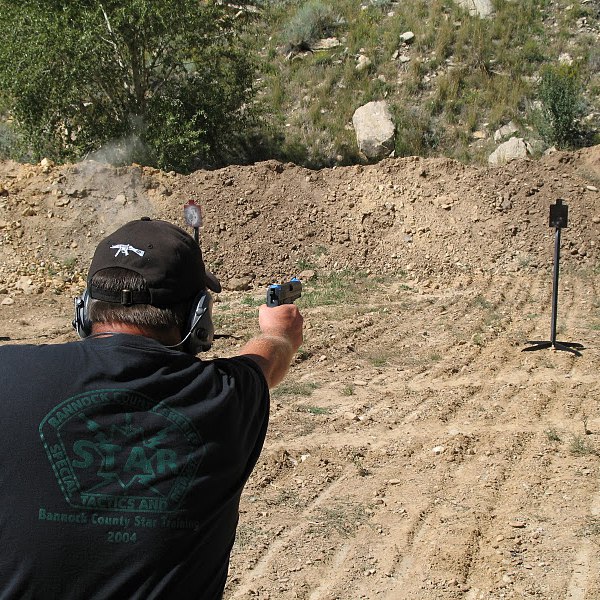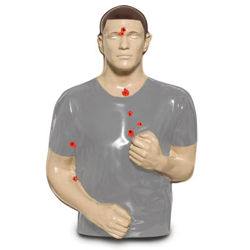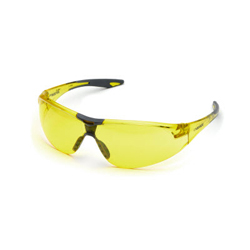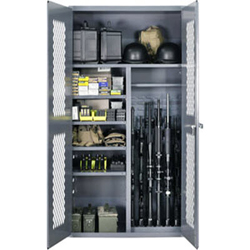By Jeffrey Denning
Editor’s Note: The views in this article are the author’s own and don’t necessarily represent those of Action Target, Inc.
Action Target hosted their 20th Law Enforcement Training Camp earlier this year. While pondering some of the unfortunate recent tragedies that have struck the law enforcement community nationwide — including a higher percentage of lethal attacks against police officers as well as the accidental shooting death of a 24-year-old corrections officer — I thought I’d offer some tactical tips to law enforcement training instructors.
Now, although this piece mentions officers and may be geared towards law enforcement in general, all the points can most definitely apply to the tactical shooting community as a whole. Here’s my advice:
Repetition is the law of learning. The more students accurately perform a variety of techniques, the more comfortable they will become. Tactical training drills allow officers to develop individual skill and assist in building muscle memory.
Muscle memory is a kinesthetic phenomenon whereby specific muscular patterns and movements become ingrained. When movements are repeated over and over, eventually these movements can be performed without conscious effort.
 Under such extreme stress, cognitive ability is diminished and thought process is narrowed acutely. When facing the stress of lethal confrontation, officers should not have to think about basic weapons manipulation or marksmanship fundamentals; if they have to think about these basic fundamentals under stress, their chances for losing increase.
Under such extreme stress, cognitive ability is diminished and thought process is narrowed acutely. When facing the stress of lethal confrontation, officers should not have to think about basic weapons manipulation or marksmanship fundamentals; if they have to think about these basic fundamentals under stress, their chances for losing increase.
On the other hand, regular practice and difficult, realistic, and challenging drills will increase survivability. Repetitive training, therefore, is vitally important when considering survival and life-saving tactical techniques.
As with any type of improvement, officers can never increase their ability unless they fail on occasion. No person can develop unless they try something new and push themselves to the limits. Failure or imperfection on a specific technique or drill is likely to occur. The idea is to have officers meet successes. Small improvements provide satisfaction which, in turn, buoys individual esteem and maintains interest and encourages persistence.
As a training instructor, here are some of the key points to remember during every range training opportunity or any tactical firearms training period.
1) Individuals that are considered “experts” in their chosen field are extremely good at the fundamentals. Focusing on the basics is a positive thing. On occasion, give students something fun too. No one wants to be bored at the range.
2) When training, it is important to remember the end goal: preparing for lethal confrontations. In order to maximize training, (a) the individual shooter should envision that each and every shot during the tactical evolution is, in reality, a lethal force situation; and (b) trainers should mimic real world events. For instance, in my last custom tailored Patrol Rifle Course, I had police officers wear the same Active Shooter go-bag that they carry in their squad cars. I had them reload from that pouch. The feedback was positive, mostly because the training mimicked real circumstances. In short, train as you fight. Don’t say, “In reality we’d do this but we’re not going to train like that.” That’s cheating yourself and your team of valuable training! Cheating or foregoing reality will get someone hurt or killed in the long run.
3) Give students several tools to fill up their tactical toolbox, but focus on what will work best. Remember, it’s not a good tactic if it doesn’t work well (a) on the move, (b) in low-light, or (c) under stress.
4) Start out slowly. Speed will come in time. Or, perhaps once you’ve done some drills at full speed, slow down to quarter or half speed until techniques are perfected, then speed back up.
5) Weapons handling skills can increase dramatically without ever shooting a single round. Dry and/or dummy round training periods are extremely helpful and are all too often overlooked. The nice thing about that is the price is right. With the budget crunch, remember, weapons handling skills doesn’t mean you have to shoot a lot of rounds. In fact, dummy rounds work wonders.
6) Firearms are inherently dangerous. Safety briefings and safety are occasionally thought of as the same thing; we’ve said it and we’ve heard it said a thousand times. Unfortunately, it’s under that premise when accidents happen. Don’t think it will never happen here. Creating an atmosphere where everyone’s comfortable enough to say, “Watch your muzzle” or “Get your finger off the trigger,” is essential. No egos among the instructors or the students. Remember, always keep safety first.
Use these tips for a safer, and more effective, training environment and continue to hone your skills and keep adding to your tactical toolbox.
About Jeffrey Denning
Jeffrey Denning is a former SWAT team leader, security contractor, undercover Federal Air Marshal, and Iraqi War Vet. He is the founder of Warrior SOS and writes tactical articles for Guns.com.
![]() with shooting drills and tips from the pro.
with shooting drills and tips from the pro.







 Under such extreme stress, cognitive ability is diminished and thought process is narrowed acutely. When facing the stress of lethal confrontation, officers should not have to think about basic weapons manipulation or marksmanship fundamentals; if they have to think about these basic fundamentals under stress, their chances for losing increase.
Under such extreme stress, cognitive ability is diminished and thought process is narrowed acutely. When facing the stress of lethal confrontation, officers should not have to think about basic weapons manipulation or marksmanship fundamentals; if they have to think about these basic fundamentals under stress, their chances for losing increase. Thanks again to everyone who participated in and helped make LETC 2011 a success! It is sincerely our privilege and honor to be able to work with the most dedicated, selfless, and hard-working members of the law enforcement community each year.
Thanks again to everyone who participated in and helped make LETC 2011 a success! It is sincerely our privilege and honor to be able to work with the most dedicated, selfless, and hard-working members of the law enforcement community each year.